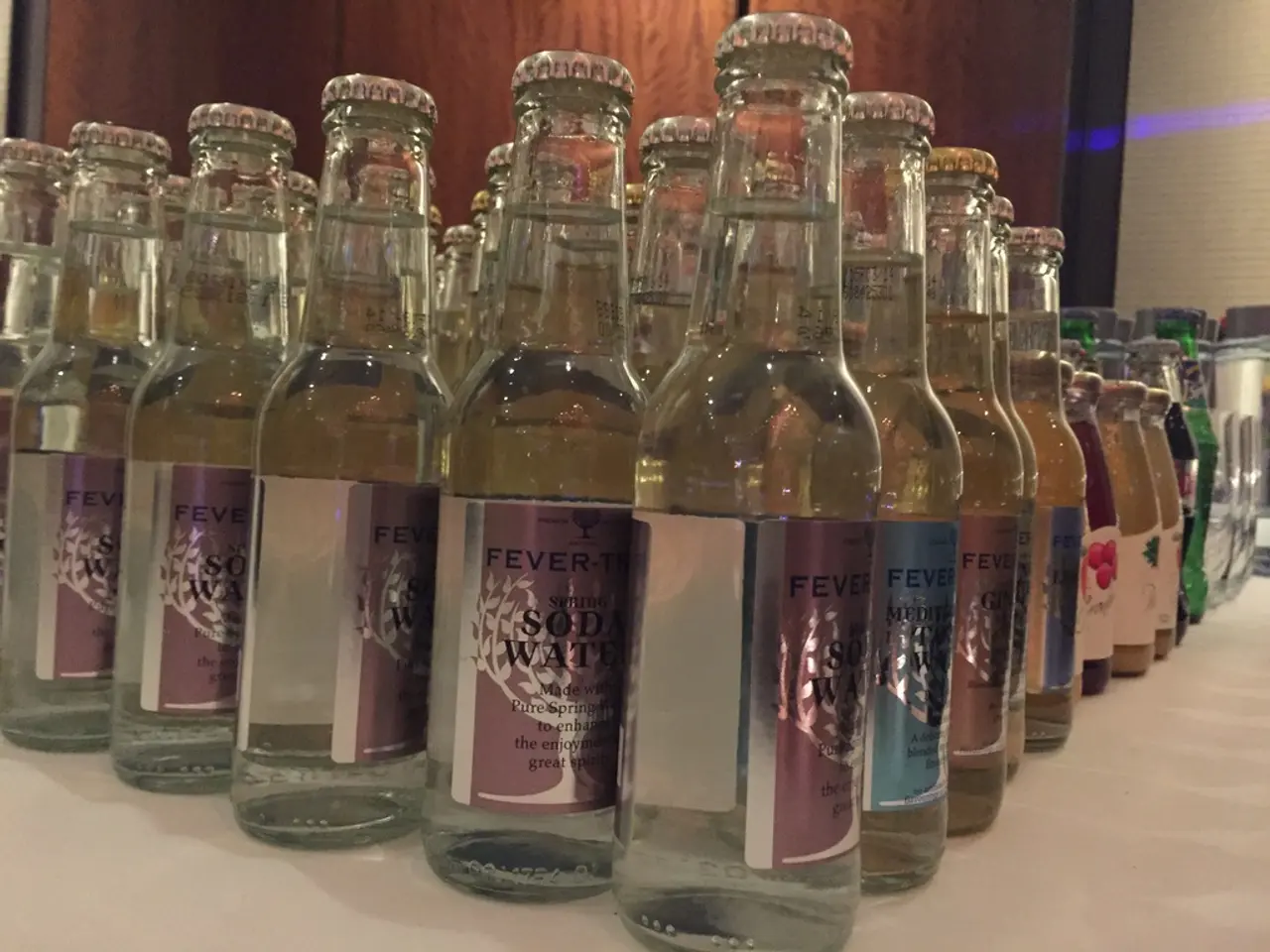Liquid Diet: Purposes, Food Choices, and Further Details
A long-term full liquid diet, unlike a clear liquid diet, offers a more diverse range of flavours and greater nutritional value. This diet, as recommended by medical professionals, includes all foods and beverages that are liquid or become liquid at room temperature.
Recommended foods on this diet typically include protein-rich liquids such as plain, sugar-free Greek yogurt, protein shakes using unflavoured protein powder mixed with unsweetened almond milk or skim milk, cottage cheese blended with milk, bone broth with added protein powder, and lactose-free milk.
Smooth soups and broths, strained cream soups with added protein powder, vegetable or meat soups blended or finely strained to be smooth, and nutrient-dense smoothies made with seeds, leafy greens, fruits, and protein powders are also part of this diet. Other beverages such as warm lactose-free milk with flavouring, sugar-free pudding with protein powder, unsweetened teas, diluted homemade fruit juices without added sugar, and coconut water in moderation are also suitable options.
However, it's important to note that a long-term full liquid diet can pose certain nutritional challenges. Adequate protein intake is essential for healing and maintaining muscle mass. Individuals are advised to aim for around 106–133 grams of protein per day by including protein shakes, yogurt, cottage cheese, and bone broth with protein powder.
Caloric sufficiency is another key consideration to prevent unintended weight loss or malnutrition. Protein shakes and nutrient-dense liquids can help maintain energy intake. Fibre intake, crucial for digestion and satiety, is often lacking in liquid diets. To compensate, individuals are advised to include fibre-rich add-ins like chia seeds, flaxseed, spinach, or psyllium husk in smoothies and soups.
Hydration is another important factor, with individuals advised to drink sufficient water (48–64 oz between meals) in addition to the volume of liquid foods (40–50 oz total volume daily) to maintain hydration. Sugar intake should be managed carefully to prevent excess calorie intake and blood sugar spikes by avoiding high-sugar liquids like store-bought fruit juices with added sugars, soda, cream-based soups, and sweetened yogurts.
Electrolyte balance also needs to be considered, especially if the diet is restrictive for extended periods. Sources of electrolytes such as bone broth, lemon water with salt, or coconut water in moderation can support balance and hydration.
It's important to note that solid pieces should be avoided on a full liquid diet. All foods must be fully liquid or very finely pureed/strained to avoid chewing, which is contraindicated on a full liquid diet.
In summary, a long-term full liquid diet should focus on protein-rich liquids, smooth pureed soups, nutrient-dense smoothies with fibre, and adequate hydration while managing calories, sugar, and electrolytes carefully. Regular consultation with a healthcare provider or dietitian is recommended to tailor the diet to individual nutritional needs and monitor for potential deficiencies.
It's worth noting that full liquid diets are typically recommended as a short-term strategy when a person has a medical issue that makes eating solids dangerous. They should not be used as a long-term weight loss strategy, as highly restrictive diets for weight loss are not safe and are not recommended by doctors.
- For individuals on a long-term full liquid diet, be mindful of HIV, MDD, bipolar, psoriasis, Crohn's, asthma, and other health-and-wellness concerns while following this diet plan.
- Certain medications such as AQ, PSA, and AD might need to be adjusted or monitored closely since they can interact with food and nutrition.
- Individuals suffering from diseases like migraine and other nutrition-related issues should consult their healthcare provider for specific dietary recommendations.
- Adding nutritious elements like seeds, leafy greens, fruits, and protein powders to smoothies is beneficial for overall health-and-wellness, including managing diseases such as psoriasis and Crohn's.
- Adequate hydration is crucial for fitness-and-exercise performance, and drinking sufficient water and liquid foods helps maintain hydration levels.
- Science continues to explore predictive markers for various health conditions, such as the link between nutrition and the risk of developing diseases like Alzheimer's or diabetes.
- Controlling sugar intake and maintaining a balanced electrolyte level is vital for health-and-wellness management on a long-term liquid diet.
- Regular monitoring and consultation with healthcare providers or dietitians can help tailor the diet to individual nutritional needs and prevent potential deficiencies.
- It is essential to adopt a holistic approach to health-and-wellness, combining proper nutrition, fitness-and-exercise, and medical treatment, if required, for overall well-being.




